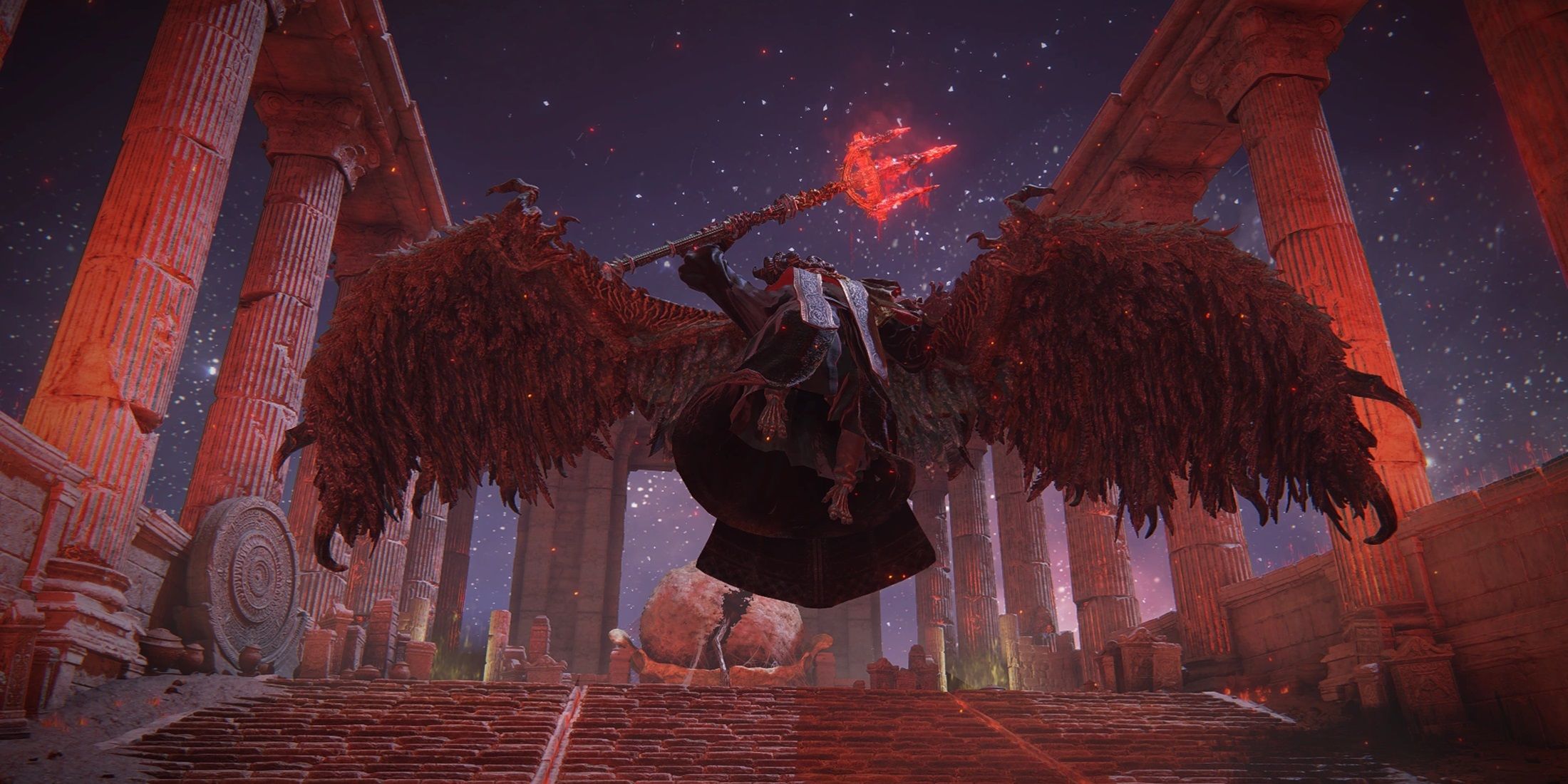Discover the Diverse World of Minecraft Wood: A Comprehensive Guide
Minecraft boasts a rich variety of trees, each offering unique aesthetic and functional properties. This guide explores the twelve main wood types, their characteristics, and optimal uses within the game.
Table of Contents:
- Oak
- Birch
- Spruce
- Jungle
- Acacia
- Dark Oak
- Pale Oak
- Mangrove
- Warped
- Crimson
- Cherry
- Azalea
1. Oak:
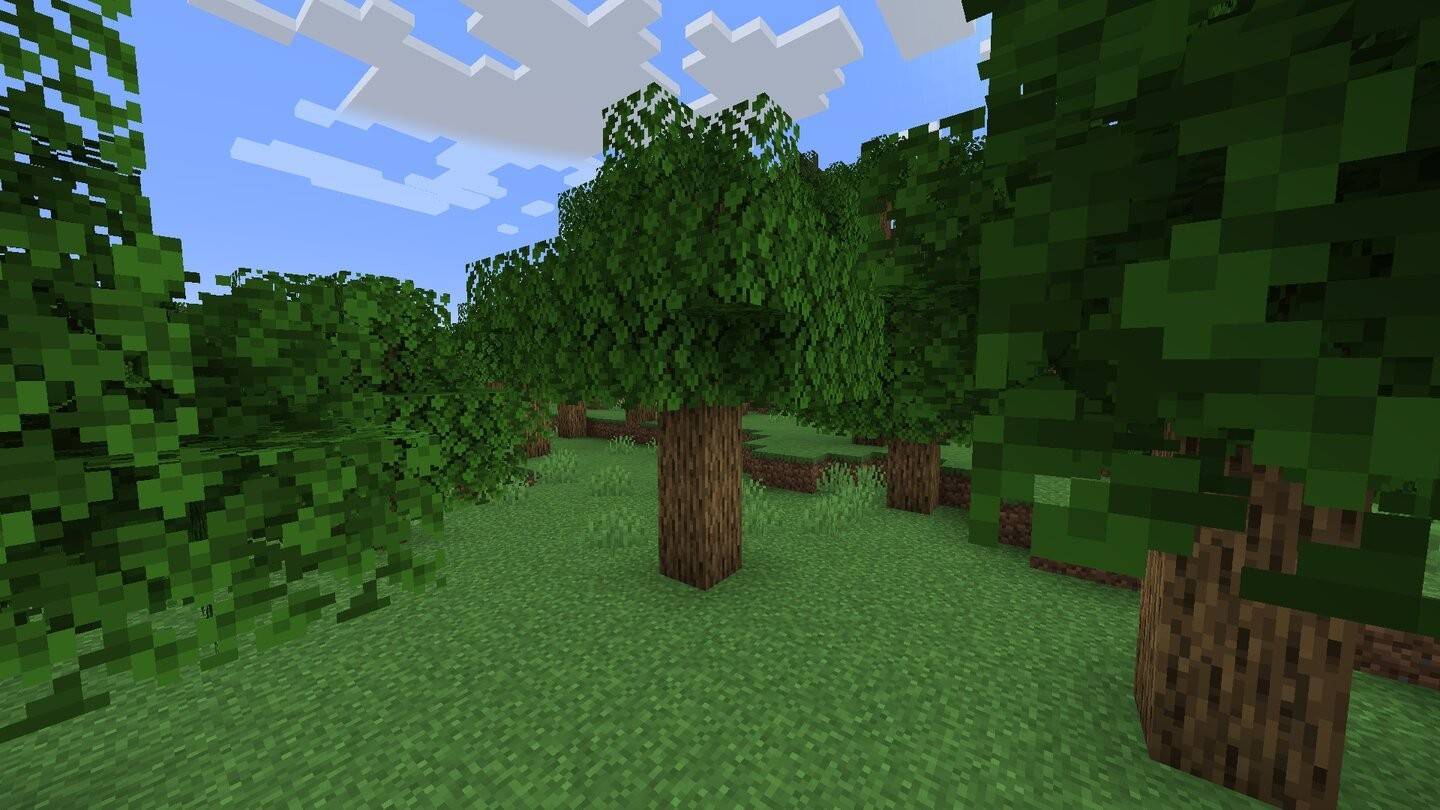 Image: ensigame.com
Image: ensigame.com
The ubiquitous oak, found in most biomes (excluding deserts and icy tundras), provides versatile wood for planks, sticks, fences, and ladders. Oak trees yield apples, a valuable early-game food source and golden apple crafting ingredient. Its neutral tone suits various building styles, from rustic cabins to modern cityscapes.
2. Birch:
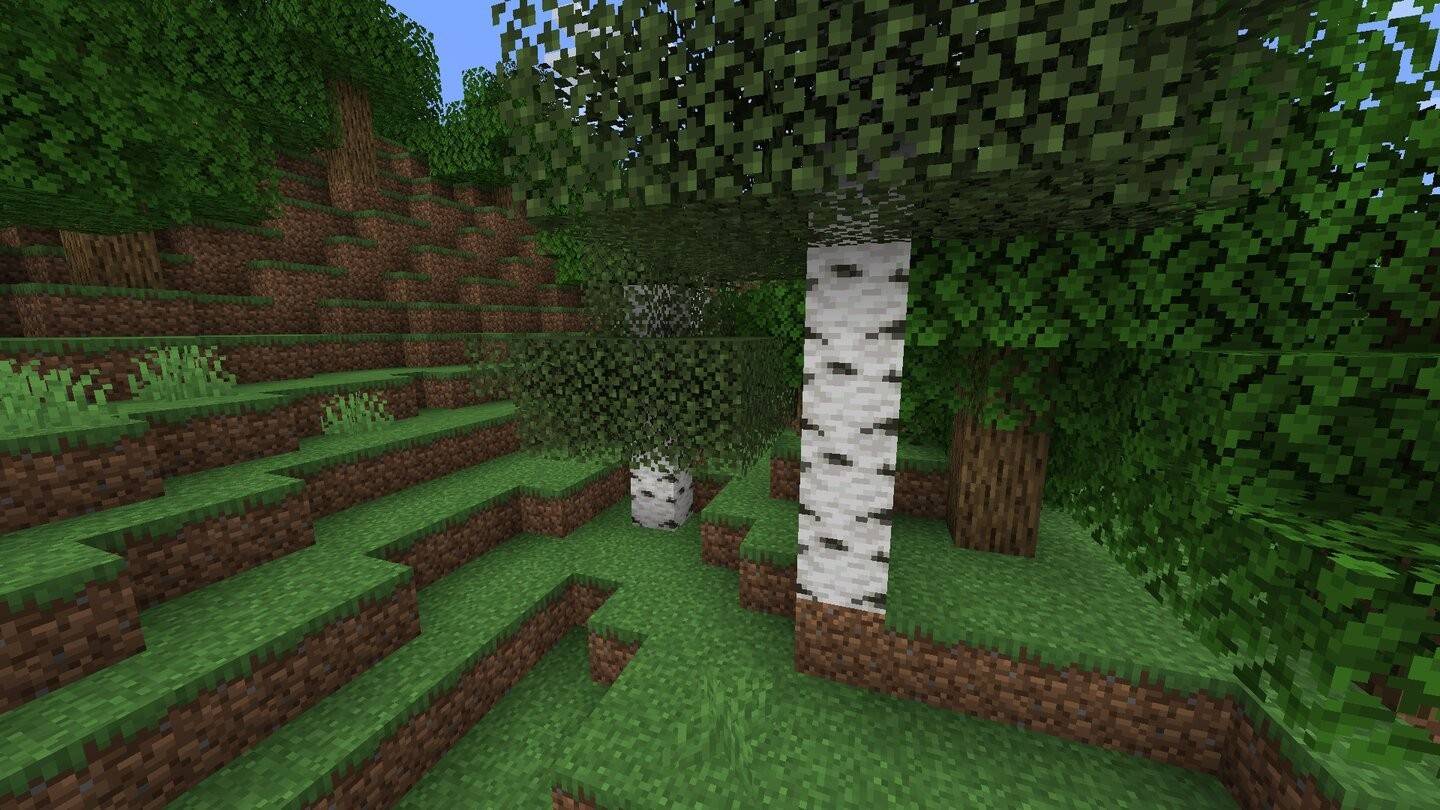 Image: ensigame.com
Image: ensigame.com
Found in birch forests and mixed biomes, birch wood's light, patterned texture lends itself to modern and minimalist designs. Its aesthetic complements stone and glass, creating bright, airy interiors.
3. Spruce:
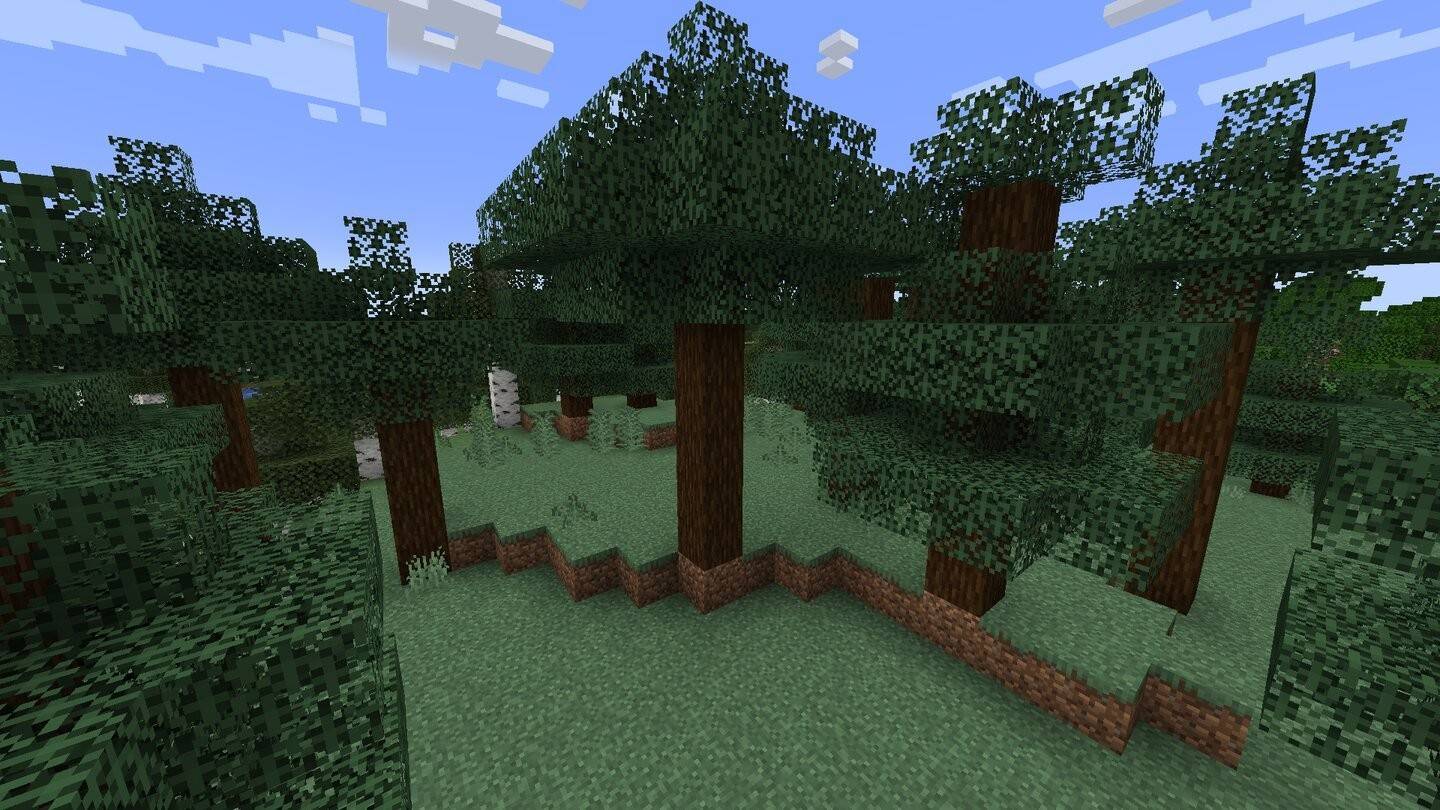 Image: ensigame.com
Image: ensigame.com
Dark spruce wood, harvested from taiga and snowy biomes, is ideal for gothic and grim structures. Its tall stature presents a slight harvesting challenge. The wood's texture adds a robust feel, perfect for medieval castles, bridges, and country homes.
4. Jungle:
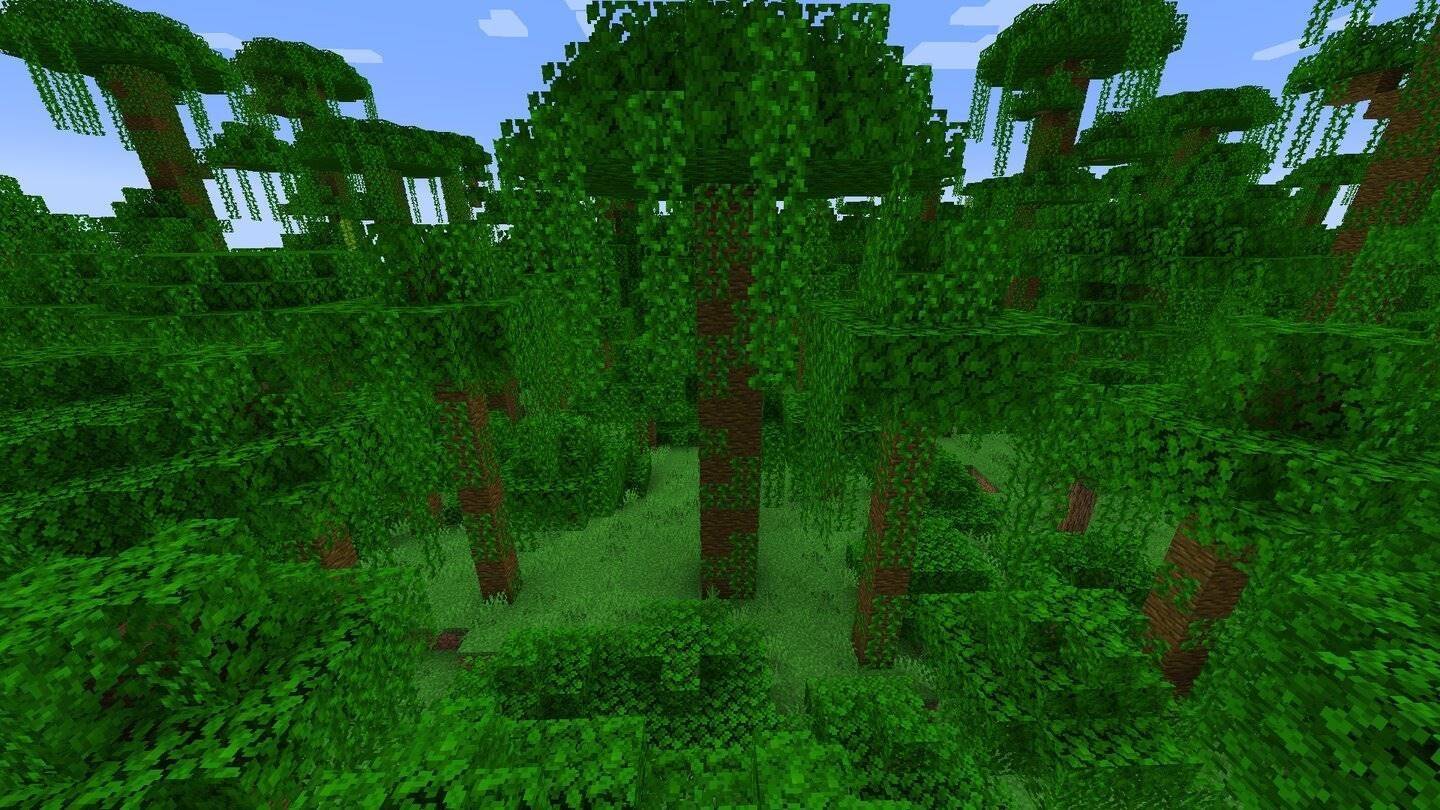 Image: ensigame.com
Image: ensigame.com
These towering jungle trees, exclusive to jungle biomes, offer bright, decorative wood. Their significance extends to cocoa bean farming. The exotic appearance suits adventure-themed builds and pirate hideouts.
5. Acacia:
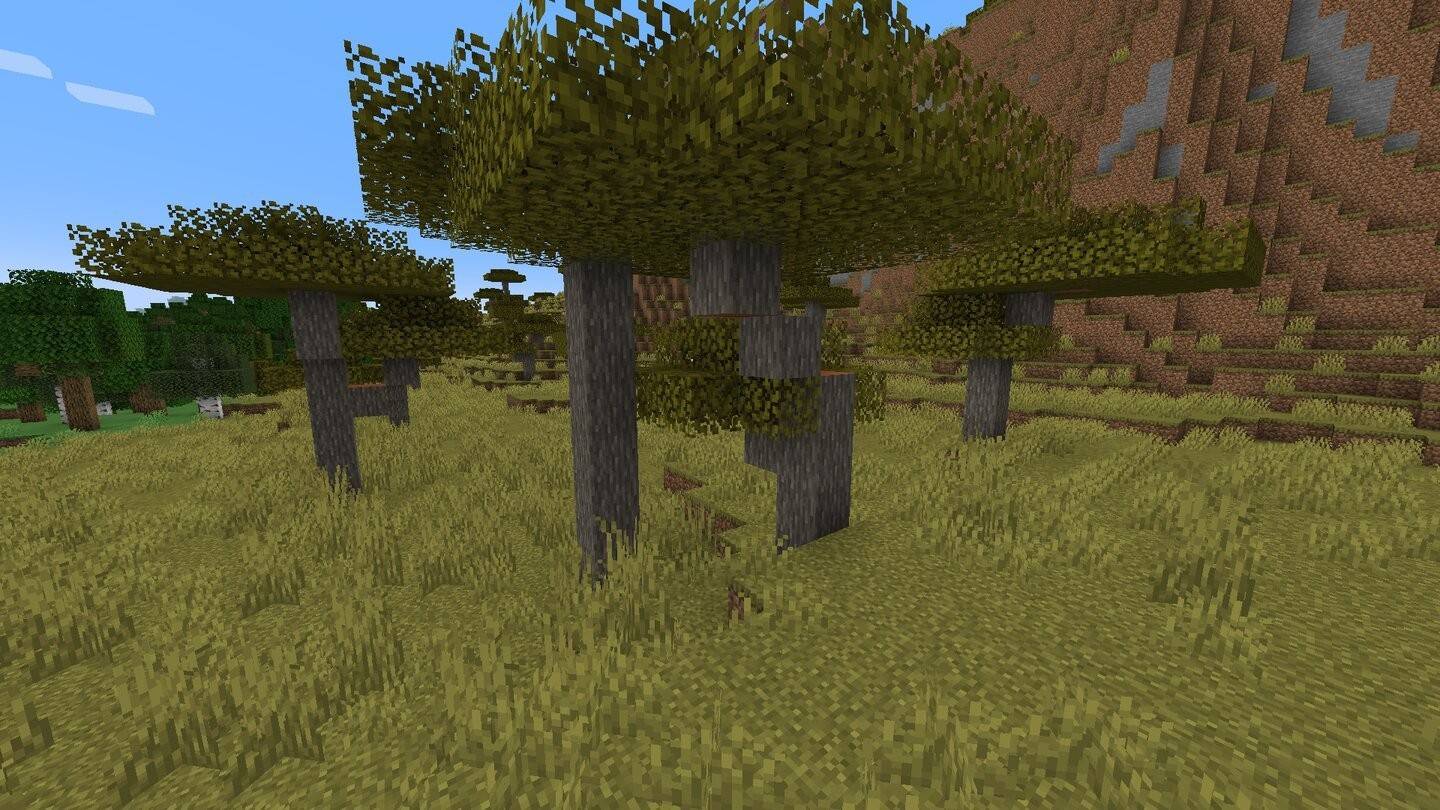 Image: ensigame.com
Image: ensigame.com
Acacia wood's reddish hue complements desert biomes. Its uniquely shaped trees, found in savannas, are perfect for ethnic-style villages, desert bridges, and African-inspired constructions.
6. Dark Oak:
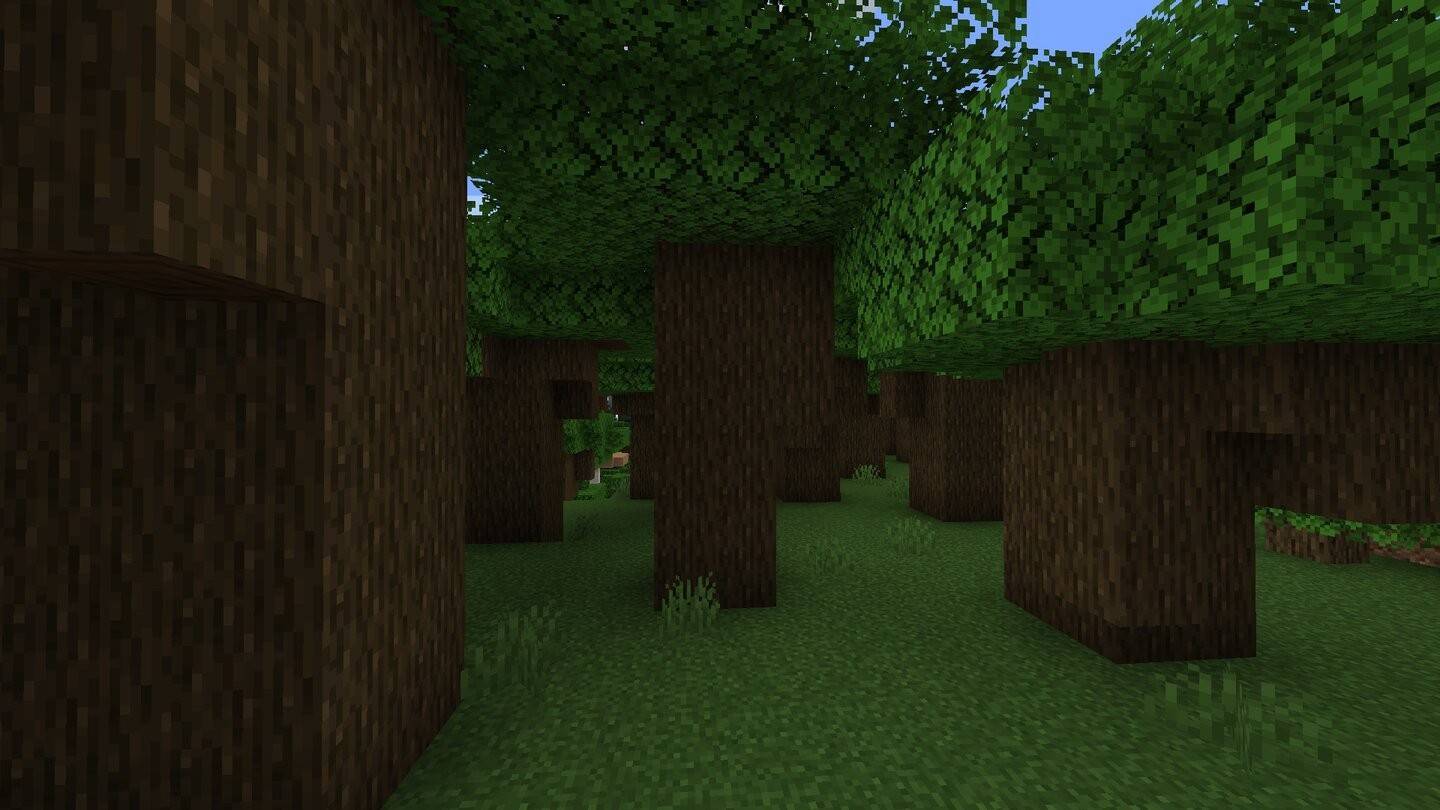 Image: ensigame.com
Image: ensigame.com
This rich, chocolate-brown wood is a favorite for castles and medieval builds. Found only in Roofed Forests, it requires four saplings for planting. Its deep texture creates luxurious interiors and impressive doors.
7. Pale Oak:
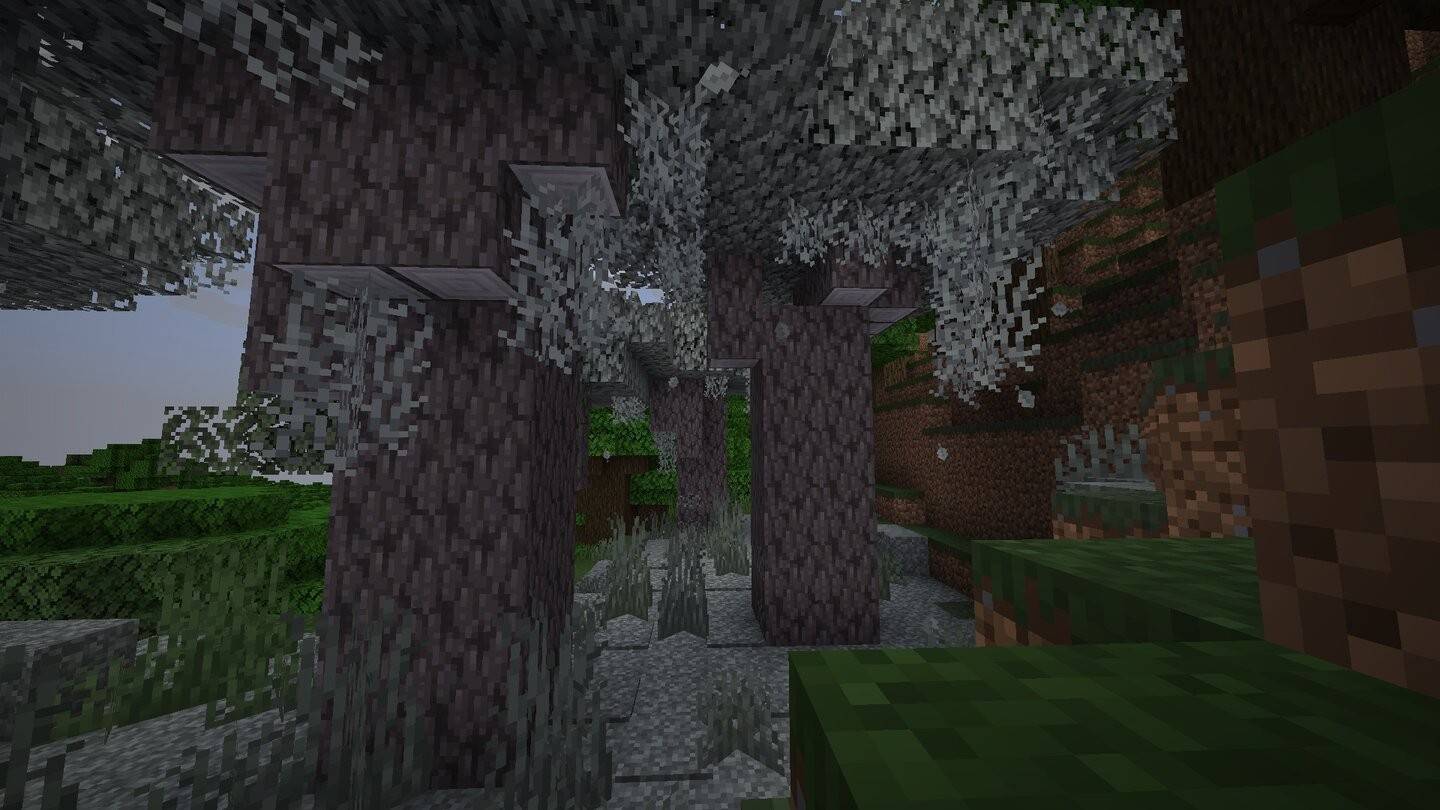 Image: ensigame.com
Image: ensigame.com
A rare find in Pale Garden biomes, pale oak shares dark oak's texture but boasts gray tones and hanging moss. Its trunk contains "skripcevina," summoning hostile "skripuns" at night. It pairs well with dark oak, offering contrasting colors.
8. Mangrove:
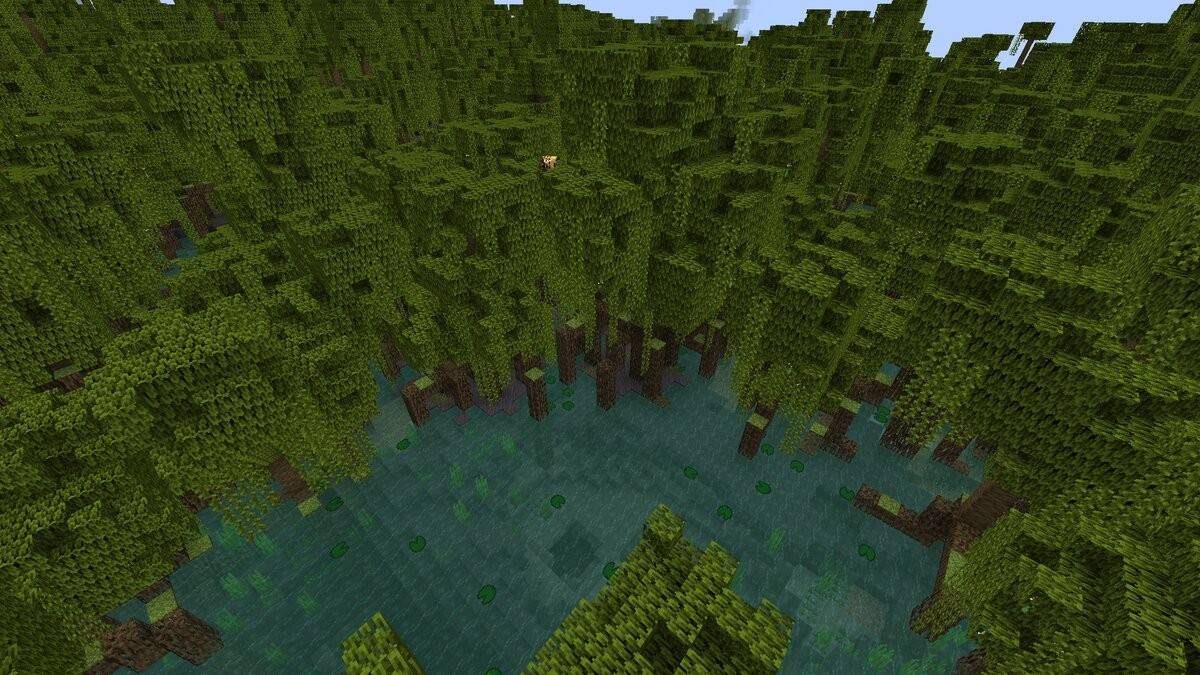 Image: youtube.com
Image: youtube.com
A recent addition, mangrove wood, found in mangrove swamps, has a reddish-brown tint. Its roots serve as decorative building elements. It's perfect for piers, bridges, and swamp-themed structures.
9. Warped:
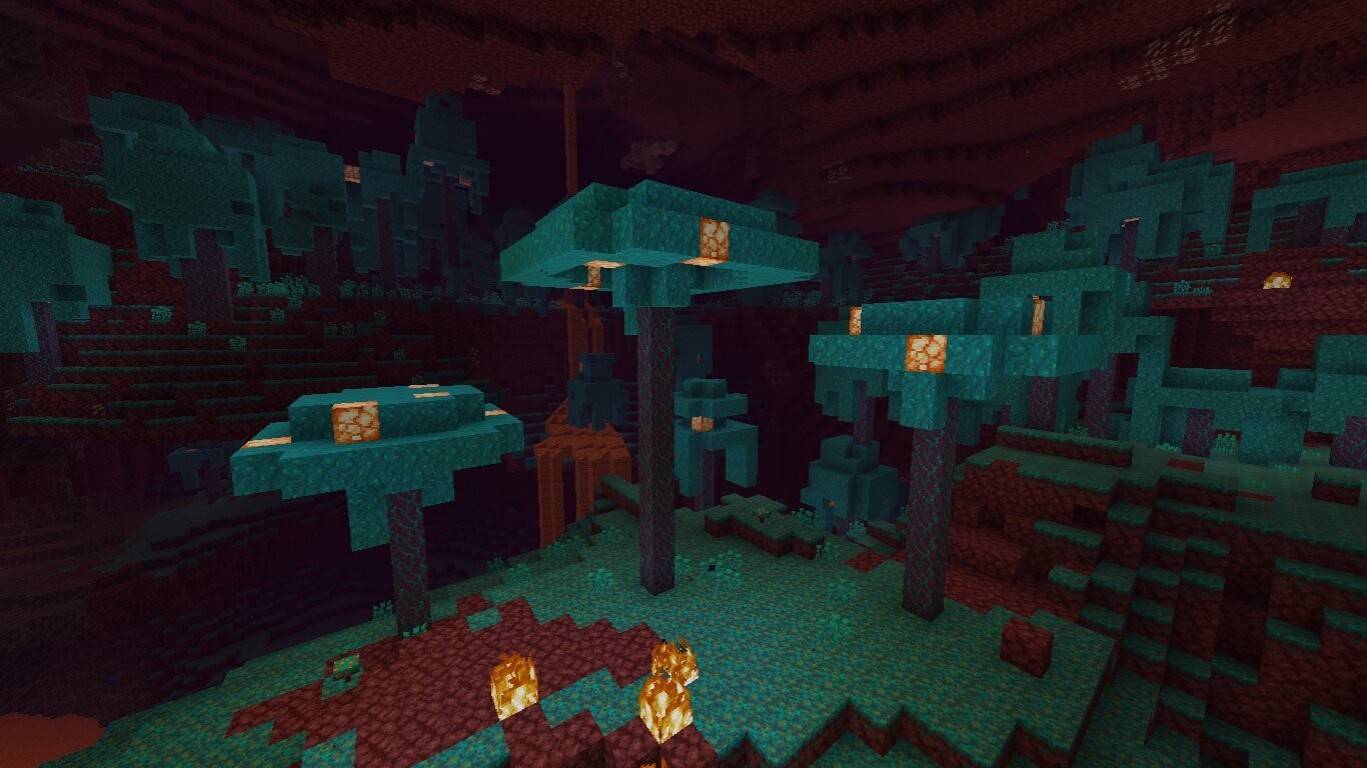 Image: feedback.minecraft.net
Image: feedback.minecraft.net
One of the Nether's two wood types, warped wood's turquoise hue creates unique fantasy builds. Its bright texture is ideal for magic towers, mystical portals, and decorative gardens. Nether wood is non-flammable.
10. Crimson:
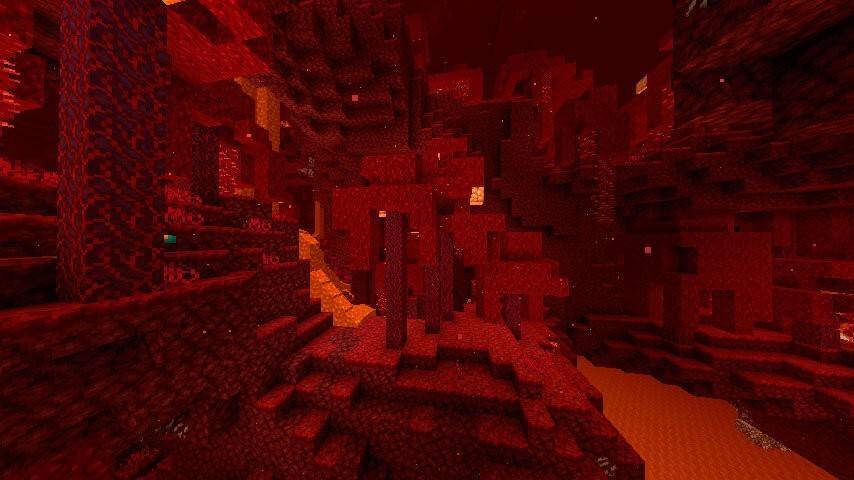 Image: pixelmon.site
Image: pixelmon.site
The Nether's other wood type, crimson wood's red-purple shade suits dark or demonic themes. Its non-flammability makes it suitable for hazardous environments. It's popular for Nether-themed interiors.
11. Cherry:
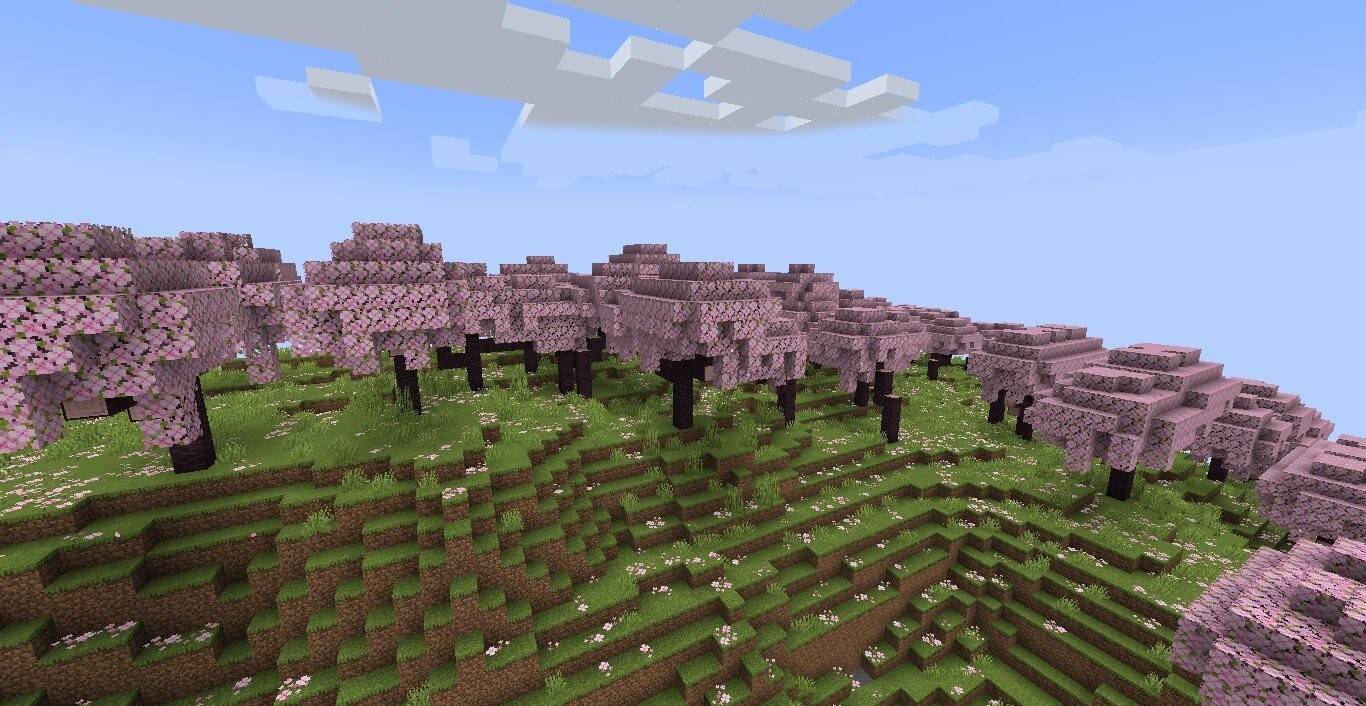 Image: minecraft.fandom.com
Image: minecraft.fandom.com
Found only in cherry grove biomes, cherry trees generate falling-petal particles. Its bright pink wood is used for interior decoration and unique furniture.
12. Azalea:
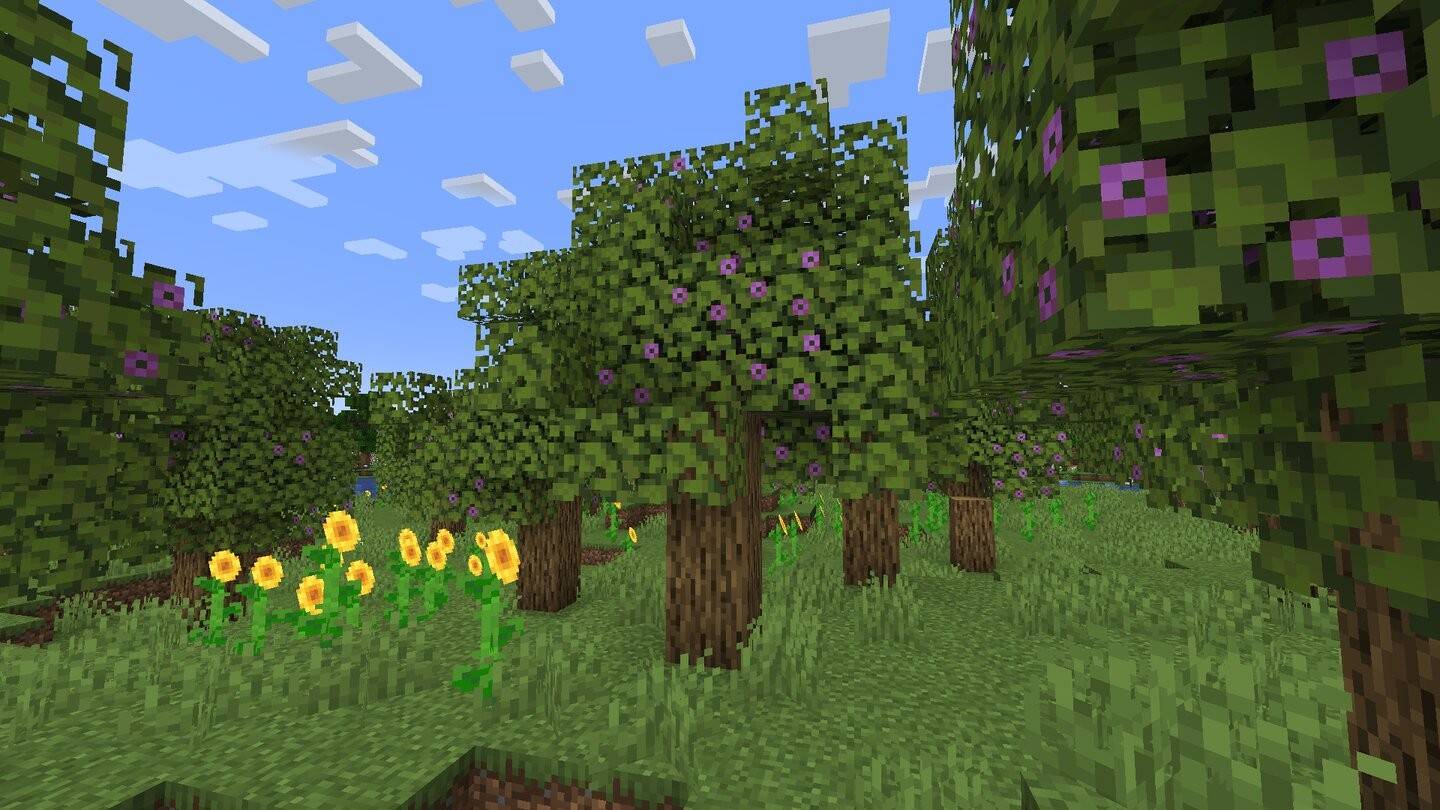 Image: ensigame.com
Image: ensigame.com
Similar to oak but with unique features, azalea trees grow above lush caves, aiding mine discovery. It has a root system. Its wood is standard oak, but the tree's flowering adds visual interest.
Beyond crafting, wood's diverse textures and colors unlock boundless creative potential in Minecraft. Mastering the properties of each wood type enhances building, crafting, decorating, and even farming strategies. So, grab your axe and embark on your architectural journey!

 Latest Downloads
Latest Downloads
 Downlaod
Downlaod

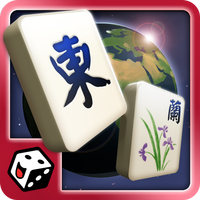


 Top News
Top News



